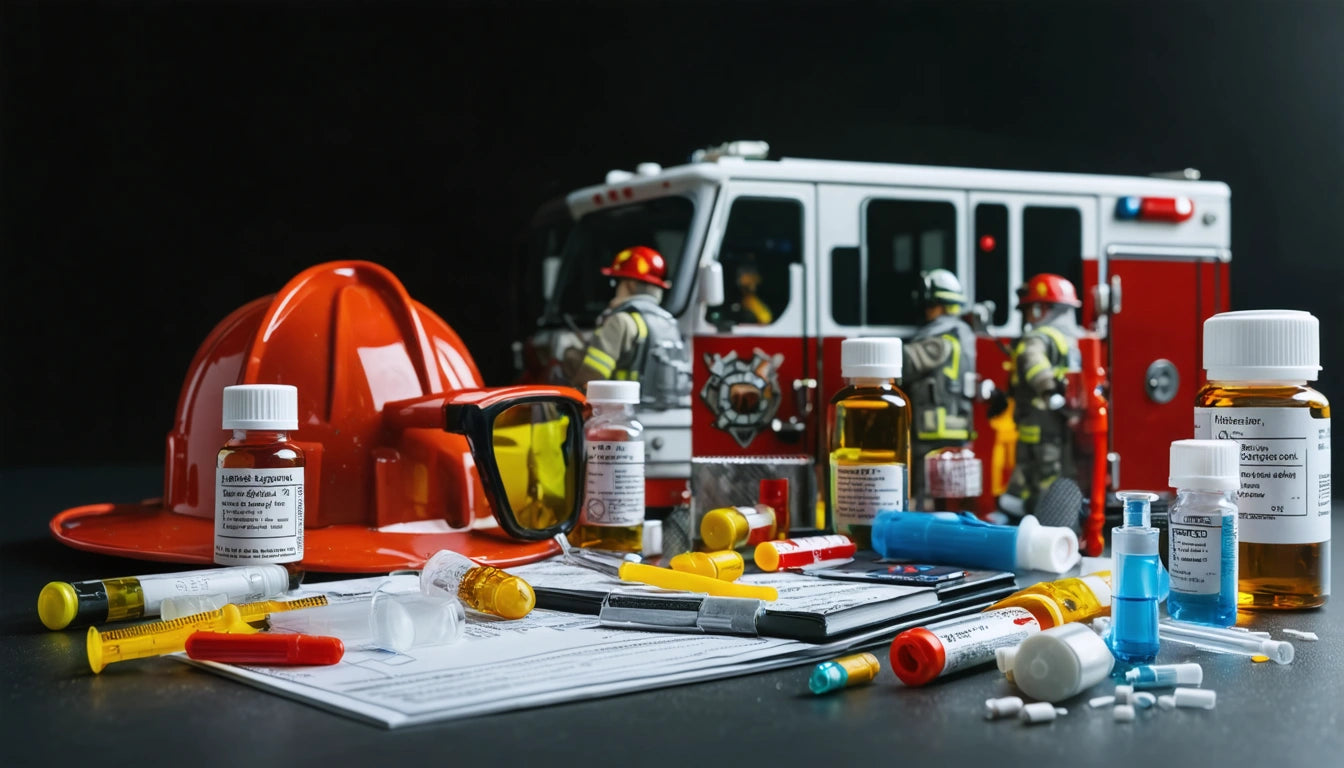Table of Contents
- Drug Testing in Law Enforcement: Policies for Police Officers
- Firefighter Drug Testing Protocols and Frequency
- Correctional Officers and Drug Screening Requirements
- Drug Testing for Healthcare Professionals: Focus on Nurses
- Marijuana-Specific Considerations in Professional Drug Testing
- The Changing Landscape of Drug Testing in Public Service
Do Public Safety and Healthcare Professionals Get Drug Tested?
Public safety and healthcare professionals hold positions of significant responsibility where impairment could lead to serious consequences. For this reason, drug testing is common across these professions, though policies vary considerably by location, department, and specific role. Understanding these testing requirements is important for current and prospective employees in these fields.
Drug Testing in Law Enforcement: Policies for Police Officers
Law enforcement agencies typically maintain strict drug testing policies. Do police officers get drug tested? Yes, most departments require pre-employment screening, random testing throughout employment, and testing after specific incidents.
Police departments generally conduct:
- Pre-employment screening as part of the hiring process
- Random drug testing throughout an officer's career
- Post-incident testing following accidents, shootings, or use-of-force incidents
- Reasonable suspicion testing when impairment is suspected
Most law enforcement agencies maintain zero-tolerance policies for illicit drug use, considering the critical nature of police work and the requirement to enforce drug laws. According to employment drug testing guidelines, law enforcement typically faces more rigorous standards than many other professions.
Firefighter Drug Testing Protocols and Frequency
Do firefighters get drug tested? Yes, firefighters are commonly subjected to drug testing due to the safety-critical nature of their work. Fire departments typically implement comprehensive drug testing programs that include:
- Pre-employment screening
- Random testing throughout employment
- Post-accident testing
- Testing when reasonable suspicion exists
The frequency of random testing varies by department, with some conducting tests quarterly while others may test more or less frequently. Many departments have adopted policies that specifically address marijuana use, even in states where recreational use is legal. This is because firefighters must maintain alertness and quick decision-making abilities during emergencies.
For those concerned about maintaining optimal conditions for their products, our humidity control solutions help preserve quality and freshness, similar to how firefighters must maintain peak performance through proper health practices.
Correctional Officers and Drug Screening Requirements
Do correctional officers get drug tested? Yes, correctional facilities typically require drug testing for officers due to the security-sensitive nature of their work and access to controlled environments.
Testing for correctional officers usually includes:
- Pre-employment screening as part of the hiring process
- Random testing during employment
- Testing following incidents within the facility
- Testing based on reasonable suspicion
Many correctional facilities maintain specific policies regarding marijuana. Do correctional officers get drug tested for marijuana? Yes, even in states with legal recreational use, most correctional systems still prohibit marijuana use by officers due to federal regulations and the security requirements of the position.
Drug Testing for Healthcare Professionals: Focus on Nurses
Healthcare professionals, particularly those with access to medications, are commonly subject to drug testing. Do nurses get drug tested in New York and other states? Yes, though policies vary by state, institution, and specific role.
For nurses, testing typically occurs:
- During the pre-employment process
- Randomly throughout employment at some facilities
- Following patient care incidents or medication errors
- When impairment is suspected
New York, like many states, allows healthcare employers to conduct drug testing of nurses, though specific requirements vary by institution. Many hospitals have adopted policies that address both illicit drugs and prescription medications that could impair performance.
According to research on detection methods, healthcare facilities often use more comprehensive testing panels that can detect a wider range of substances compared to standard employment screens.
Marijuana-Specific Considerations in Professional Drug Testing
With changing marijuana laws across the United States, many professionals wonder about marijuana-specific testing. Do firefighters get drug tested for marijuana? Do police get drug tested for cannabis? The answer is generally yes, even in states with legal recreational use.
Key considerations include:
- Federal regulations still classify marijuana as a Schedule I controlled substance
- Safety-sensitive positions typically maintain prohibition regardless of state law
- Testing methods can detect marijuana use from days to weeks after use
- Some agencies have modified policies in states with legal use, but most maintain restrictions
Most public safety agencies continue to test for and prohibit marijuana use due to concerns about impairment and federal regulations. Employer testing for marijuana remains legal even in states with recreational legalization, particularly for safety-sensitive positions.
The Changing Landscape of Drug Testing in Public Service
The approach to drug testing across public safety and healthcare professions is evolving, particularly regarding marijuana. Several trends are emerging:
- Some agencies are focusing more on impairment testing rather than presence of substances
- Policies are being updated to address CBD use, which can sometimes trigger false positives
- Testing technology is becoming more sophisticated, allowing for more accurate detection
- Some jurisdictions are modifying zero-tolerance policies for marijuana while maintaining strict standards for on-duty impairment
As laws and social attitudes continue to change, public safety and healthcare organizations must balance safety concerns with evolving legal frameworks. For individuals in these professions, staying informed about specific departmental policies and understanding testing processes remains essential.
While policies vary across departments and institutions, the commitment to public safety and patient care continues to drive testing requirements across these critical professions. As regulations evolve, testing protocols will likely continue to adapt while maintaining the core focus on ensuring professionals can perform their duties safely and effectively.











Leave a comment
All comments are moderated before being published.
This site is protected by hCaptcha and the hCaptcha Privacy Policy and Terms of Service apply.